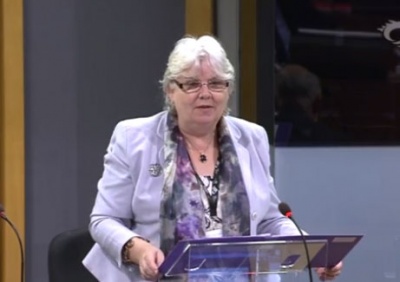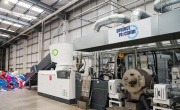Wales considering deposit-return scheme
 The National Assembly of Wales (NAW) will tomorrow (9 December) debate on the possibility of instituting a deposit-return scheme (DRS) for Wales, weeks after the Welsh Conservatives announced that they would introduce a pilot system should a Conservative Welsh Government be formed in next May’s elections.
The National Assembly of Wales (NAW) will tomorrow (9 December) debate on the possibility of instituting a deposit-return scheme (DRS) for Wales, weeks after the Welsh Conservatives announced that they would introduce a pilot system should a Conservative Welsh Government be formed in next May’s elections.
Wednesday’s ‘short debate’, a motion that can be introduced by any member of the NAW, will be led by William Powell, Welsh Liberal Democrat member for Mid and West Wales and member of the Environment and Sustainability Committee, who says that the idea of a DRS for drinks containers has ‘come again’.
Under the Conservatives, the party says, the government would work with producers, retailers and environmental bodies to set up a 10-pence deposit-return pilot, with the smallest retailers exempt.
The topic of a Welsh DRS was broached at a plenary session of the NAW on 25 November that was discussing environmental crime, with no clear objections from any party.
DRS debate
At that plenary, Janet Haworth, Shadow Minister for the Environment, introduced the topic to the Senedd debate on behalf of the Conservatives.
The motion for a pilot was brought to the NAW as a possible measure for reducing environmental crime in Wales. Issues such a litter, dog fouling, fly-tipping and graffiti are hampering Wales’s economic development, whilst also encouraging crime, according to the party. Haworth stated that £70 million is spent every year in Wales cleaning up environmental crime.

There are several options for DRSs, said Haworth, but many organisations in the UK, including Friends of the Earth Cymru, favour a system based on ‘reverse vending machines’ at larger retailers.
Such a scheme requires members of the public to pay a deposit upon purchase of a recyclable container. The deposit is then reclaimed from the vending machines when the item is returned. Discussion with manufacturers would be needed, said Haworth, to see how it could operate.
Support for DRS pilot
Haworth was supported by Liberal Democrat and Plaid Cymru speakers at the Senedd debate. They suggested that, like the carrier bag charge, which has seen the use of single-use carrier bags drop by 71 per cent since 2011, it would change people’s attitudes and behaviour.
Carl Sargeant, Minister for Natural Resources in the Labour majority Welsh Government, said that he had an open mind on a deposit system, but would have to look at the costs and implication. He said that he has been in touch with the Scottish Government, which is also investigating the viability of a DRS, to discuss the topic.
Julie Morgan, a Labour member, added that although a DRS could be feasible, the issues are more complicated than they seem. Retailers would be against deposits, she said, but “we could move ahead once we have all the information we need”.
Ambitious targets need innovative action
Haworth said: “Local authorities in Wales have just 10 years to reach an ambitious 70 per cent target for recycling, and as that deadline approaches it’s going to become harder and harder to make a difference. But it’s not just about hitting a target, it’s about respecting and preserving the beautiful country we live in.
“That’s why the Welsh Government has to be ambitious and willing to explore innovative schemes such as these, and a Welsh Conservative government in May would take steps to introduce a pilot scheme here in Wales.”
Prior to the first debate, Welsh Conservative Leader Andrew RT Davies said: “Deposit-refund schemes operate effectively the world over, and can financially incentivise recycling and reduce waste significantly.
“A pilot scheme could play a key role in initiating a fundamental culture shift in Wales, as well as tackling the source of three-quarters of the litter we see on our streets each day.”
DRS in Scotland
The Scottish Government is also considering whether a DRS could boost recycling and reduce litter arising.
In May, a feasibility study into a DRS in Scotland was published by Eunomia Research & Consulting on behalf of Zero Waste Scotland. The study looked at the key considerations surrounding the implementation of such a system and studied models already operating in countries such as Denmark, Australia, the US and Canada.
Environmental charity Keep Scotland Beautiful has opposed the idea, however, with a spokesperson stating that although KSB is not opposed in principle to deposit-return schemes, “the scale of the investment required to roll out this proposed scheme, the lack of consultation with key stakeholders, and the absence of relevant evidence that it would deliver any significant reduction in litter, means it is not the right solution to changing littering behaviour in Scotland at this time”.
In August, drinks company Barr, producers of Irn Bru, stopped a 30-pence deposit scheme that had run for 110 years. The company said that the move came after kerbside recycling systems saw the proportion of bottles being returned from 90 per cent to 50 per cent.
Learn more about the arguments for and against DRSs in comment pieces from Resource 71.







